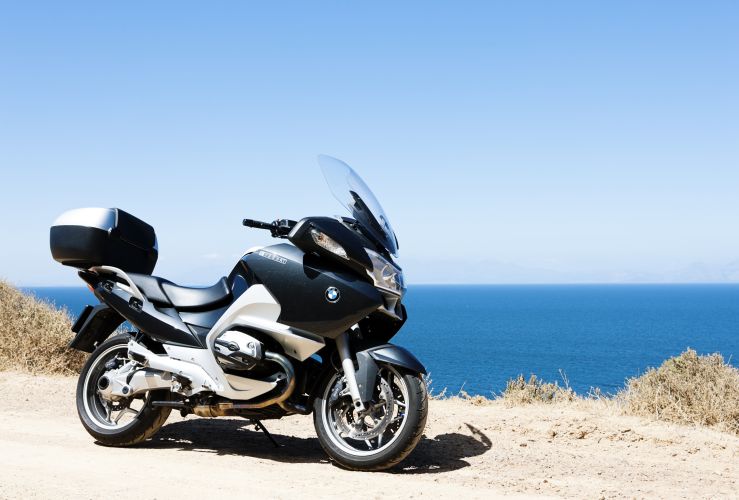
As much fun as riding on two wheels is, it’s undeniably riskier than travelling by car. But BMW has given itself the task of making motorcycle riding much safer - by harnessing autonomous technology.
The results - so far - have been unveiled at this year's CES in Las Vegas, in the form of a BMW R 1200 GS which is completely self-stabilising. Indeed, it can move off, accelerate, navigate a winding test track, do figure-of-eights, reduce speed and, perhaps spookily of all, flip out a stand to rest on when it stops.
If such a machine were permitted in a UK bike test, it would make mincemeat of the Mod 1 section, where one has to manoeuvre around a confined area at low speeds.
While the panniers of regular bikes are usually filled with all the supplies and gear a motorcyclist needs, the storage spaces on BMW's self-riding bike are packed with motherboards and wires, all of which ensure the machine doesn't lose its balance. This wizardry stands in contrast to Honda's own self-riding bike, which is loaded with spinning gyros.
For many, the pleasure of riding a bike comes, in part, from taking full control of the machine oneself - a machine that needs to be ridden with skill and caution. But the arrival of such undeniably impressive technology suggests that one day soon we may have to give in to ‘the robots'.
Will BMW make a fully autonomous bike?
That said, BMW itself is not looking to make a fully autonomous bike, so the purists among us can rest easy - at least a bit. One of the best aspects of this technology is that you'll have much more warning if someone suddenly pulls out in front of you. Something we can all agree is a good thing.




